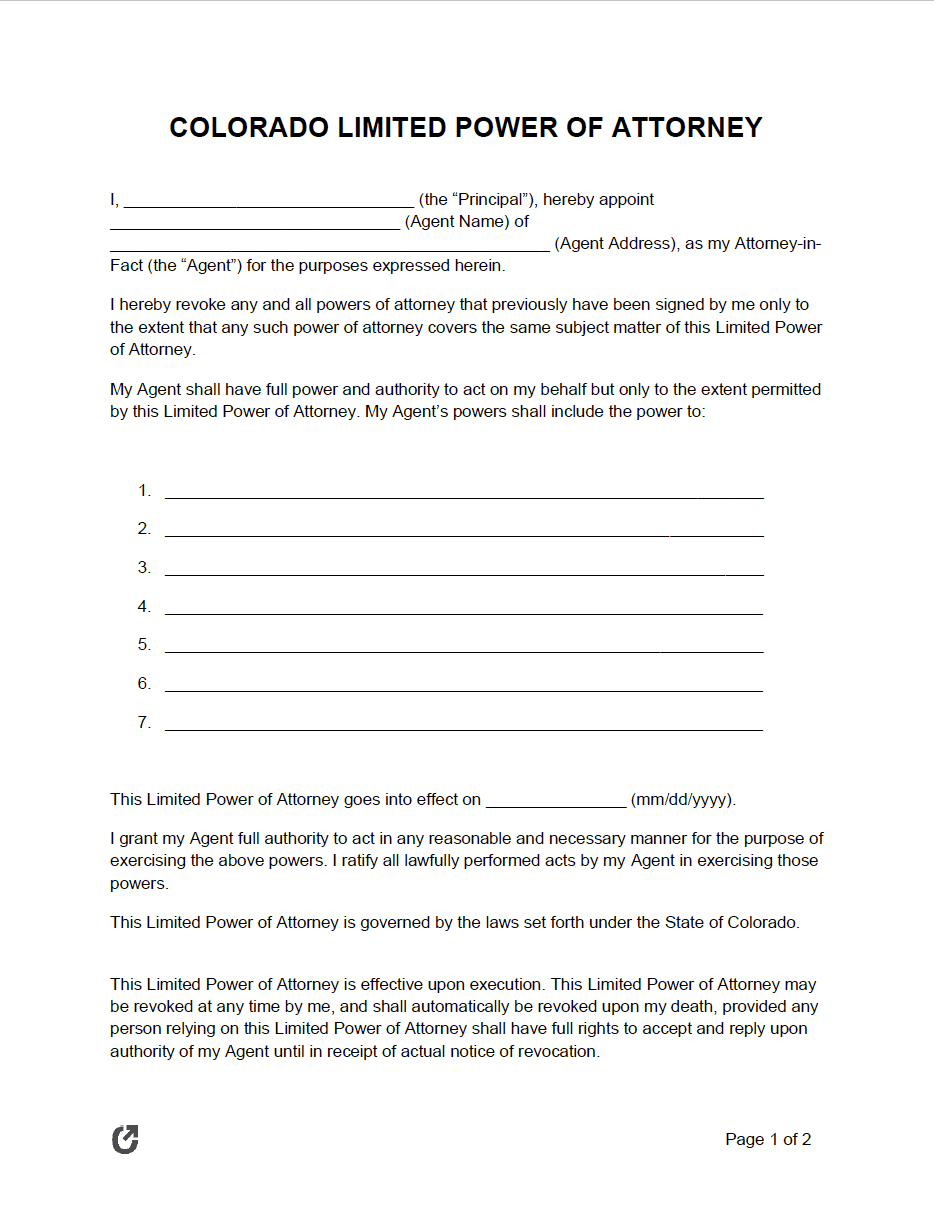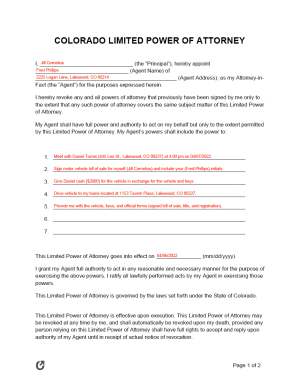Colorado Limited Power of Attorney Form
A Colorado limited power of attorney form allows a resident to appoint someone they know and trust (the agent) to handle one or more responsibilities in their absence.
The person completing the document is known as the principal in both the contract and state law. Once completed, the tasks assigned in the power of attorney must be carried out by the agent as written. As soon as they fulfill the responsibilities, the form no longer holds power.
|
What is a Colorado Limited Power of Attorney?
A Colorado limited power of attorney is a short-lasting form that a principal uses for one-time, special tasks. It is not considered durable because it ends if the principal cannot make their own decisions or passes away.
The document often has a time restriction, meaning the person writing it sets a start and end date. This process encourages the agent to complete their tasks before the deadline and ensures they do not have everlasting power.
If it is the intention of the principal to create a long-lasting form, they would benefit from a durable or general power of attorney instead.
Who Should Use a Limited Power of Attorney?
Residents who need one-time responsibilities completed by an appointed individual should use a limited power of attorney. This form allows a principal to assign tasks, such as having someone pick up their mail, deposit a check, or sign paperwork in their place.
On the other hand, if the principal wants to assign long-term duties to another person, they would benefit from another type of form. The list below contains various types of power of attorney documents and their purpose to determine the best fit.
- Durable: Gives an agent power to make financial decisions for a principal even upon their death or incapacitation.
- General: Allows another person to carry out financial tasks for the creator of the document, but immediately terminates upon their death or incapacitation.
- Medical: Enables an assigned individual to make health-related choices for the principal
- Minor Child: Provides someone with consent to take care of the principal’s child temporarily.
- Motor Vehicle: Grants permission to a representative to manage automobile-related responsibilities.
- Real Estate: Permits a designated individual to handle duties relating to someone’s property.

